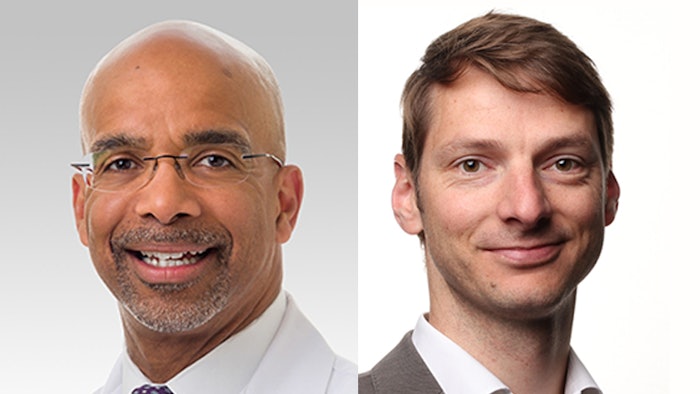Age: Is it a number, or a biology?
Champions of cardiovascular health and investigators in the aging domain unite to address age-old questions and present innovative insights

The prospects — and byproducts — of getting older can be difficult and disheartening, and many people believe that aging is inevitable. While age is a significant factor of health, particularly cardiovascular health, surprisingly, it is not an immutable factor.
In the upcoming session, Aging as a Unique Determinant of Cardiovascular Health, speakers will address what it means for humans to age from chronological, biological, mechanical and epidemiological perspectives. Researchers and thought leaders also will examine additional aging factors, potential efforts to impact the aging process and outlooks on the future of aging science.
“In every risk equation assessing the burden of cardiovascular disease, the dominant risk variable is age,” said Clyde W. Yancy, MD, MSc, MACC, FAHA. “Yet, the presumption that aging is a ‘fait au complet’ is rooted in empiricism, not data.”
Dr. Yancy is vice dean of diversity and inclusion and the Magerstadt professor of medicine, professor of medical social sciences and chief of the Division of Cardiology at Northwestern University Feinberg School of Medicine in Chicago. He is also associate director of the Bluhm Cardiovascular Institute at Northwestern Memorial Hospital.
Although chronological age is an inflexible figure, Dr. Yancy said components or variables can influence a person’s biological time clock, such as genetics, lifestyle, environment and social determinants of health.
“Moreover, there is a biology of aging, and the subsequent burden of chronic age-related diseases may well be suitable for both lifestyle and pharmacological interventions,” Dr. Yancy said. “In short, we can’t slow the clock itself, but we may be able to slow the effects of the clock at an individual level.”
According to Dr. Yancy, existing data demonstrate that people “age” according to three phenotypes: normal agers whose physiology is appropriate for their age; accelerated agers who have an earlier onset of age-related maladies; and super agers who have the physiology of someone decades younger.
“Clearly, aging is a process with a distinction between chronology and biology,” he said. “We should no longer assess age just as chronology; rather, we should determine aging as the sum total of the biological processes contributing to our health journey.”
Common cardiovascular conditions, such as hypertension, atherosclerosis and heart failure, as well as dementia and cancer, often are associated with damaged cellular function caused by increased age, Dr. Yancy said. Being able to identify the variables of how people age at the anatomical and molecular levels would assist in assessing cardiovascular health.
This phenomenon prompts a wealth of exploration to search for answers or treatments that can alter the course of humans’ health and life.
Reinier Boon, PhD, has dedicated his recent research to searching for remedies and solutions that could possibly help. Dr. Boon is professor for RNA therapeutics at Goethe University in Frankfurt, Germany, and professor for molecular cardiovascular aging at Amsterdam UMC in Amsterdam, the Netherlands.
“On a therapeutic level, there are some promising strategies, namely the use of senolytics, which interfere with pathways known to be overactive in aging via small molecules or interfering with, for example, so-called non-coding RNAs,” Dr. Boon said.
The primary purpose of studying senolytics or non-coding RNAs, Dr. Boon said, is to validate and translate treatments that directly impact age-related disorders by preventing, delaying, improving or curing them.
“The natural experiment is to study those with evidence of healthy aging and understand what characteristics are candidate hypotheses that support healthy aging,” Dr. Yancy said.
Anybody looking to improve one’s health and prolong life can implement the necessary lifestyle factors: diet, exercise, sleep, weight management, no smoking and control of blood pressure, cholesterol and blood sugar — otherwise known as the American Heart Association’s Life’s Essential 8. In addition to these traditional strategies, Dr. Yancy said mental health, social activity and caloric restriction also impact our well-being and longevity.
“The benefits of increased anti-inflammatory and antioxidant nutrients in a healthy diet offer tantalizing opportunities to further modify aging,” he said.
Drs. Boon and Yancy will moderate this extraordinary, eye-opening session on aging, which also includes focused speaker presentations and a panel discussion.
“This is among the most exciting fields of research with important public health implications,” Dr. Yancy said. (We’re) bringing together behavioral science, clinical science and basic science in hope of discovering not the fountain of youth, but the recipe for long-term health.”











